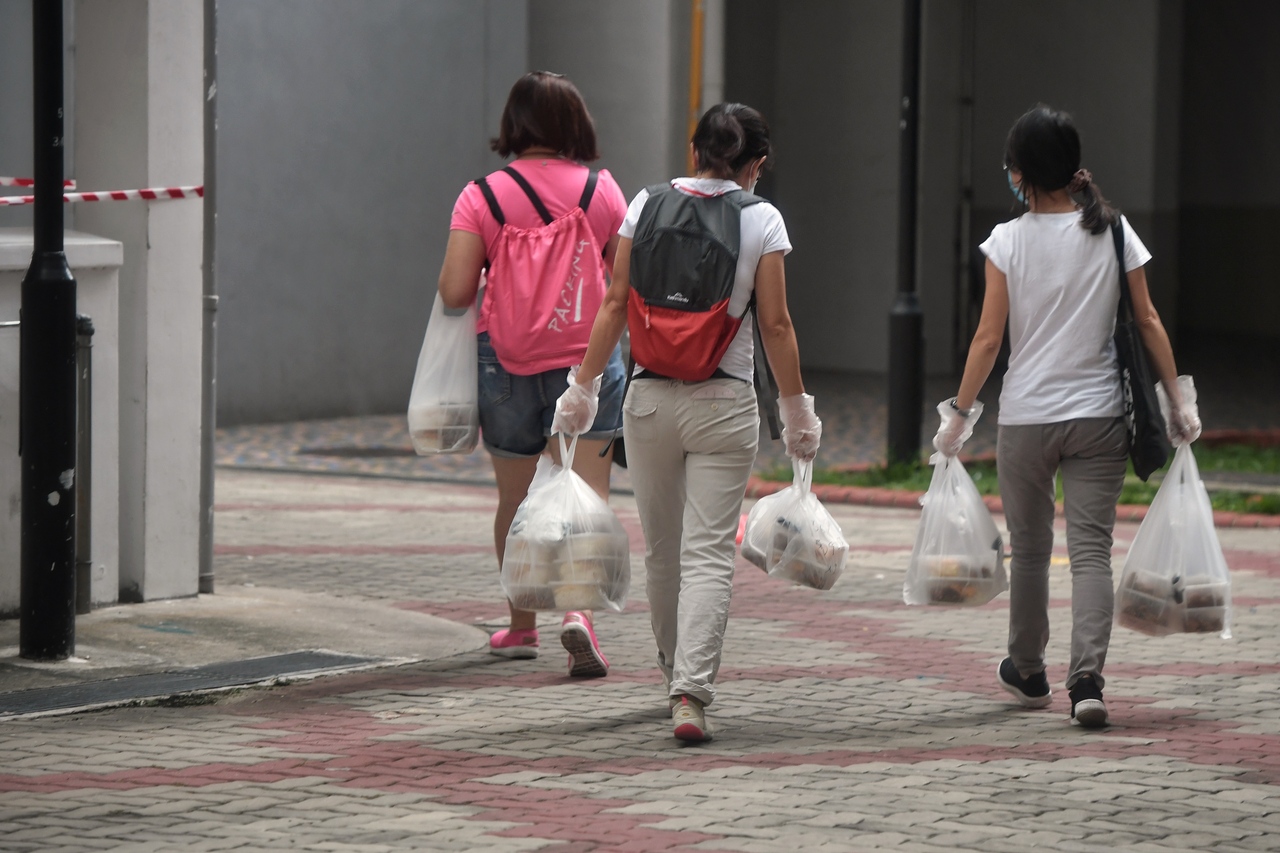Better management of volunteers needed in social sector, experts tell a panel discussion
Sign up now: Get ST's newsletters delivered to your inbox

The panellists also called for more focus on ensuring that volunteers come back regularly to help.
ST PHOTO: KUA CHEE SIONG
Follow topic:
SINGAPORE - Non-profit organisations can utilise their manpower, including staff, more effectively with better management of volunteers, a panel discussion heard on Thursday (Oct 29).
This is especially important during the Covid-19 pandemic as resources such as donations and volunteer involvement are spread thin.
These were some of the issues raised by five panellists in the virtual webinar titled "Re-imagining Singapore's Social Sector - Resilient and Future-Ready", which more than 150 social sector representatives and members of the public attended.
The panellists called for more organisation of volunteers, as well as more focus on ensuring that they come back regularly to help.
Speaker of Parliament Tan Chuan-Jin, who was the guest of honour at the webinar, said knowing that one can count on volunteers to come regularly allows organisations to free up staff to rest or do other things.
For example, if there are daily morning and afternoon programmes run by volunteers, it will free up resources for the organisation to do more, he said.
He added that having a volunteer manager would mean this would be organised better. The webinar was organised by a group of Singapore Management University (SMU) students who conducted a sector-wide study on the challenges emerging in the sector and wrote up a report.
Along with over 50 volunteers, they also worked with various non-profit organisations to come up with ways to address the challenges exacerbated by the Covid-19 pandemic.
Mr Ho Han Peng, assistant director at the Lien Centre for Innovation at SMU, noted that the non-profit organisation sector in Singapore had grown over the years.
"It's become a much more crowded, diverse and dynamic space with more avenues for volunteerism," he said.
He added that the new generation are more socially conscious and more willing to do work to make a social impact.
The report highlighted the importance of building robust volunteer programmes and management systems.
It said current volunteers could become future donors, as well as rope in their companies, friends and family to join the cause.
The panellists also discussed other topics relevant to the sector such as the importance of collaboration and communication between groups, so as to reduce duplication.
With more ground up movements being started, chances of service duplication are higher, they said.
National Volunteer and Philanthropy Centre director of knowledge and insights Fazlin Abdullah called for non-profits to simply talk to each other to check for duplication or inform about their plans.
Lions Befrienders deputy executive director Karen Wee said that her organisation tries to teach the seniors they help not to accept unnecessary aid such as extra food.
Instead, they let staff from Lions Befrienders know about the food, which they then pick up and re-allocate to others who need it, she added.

